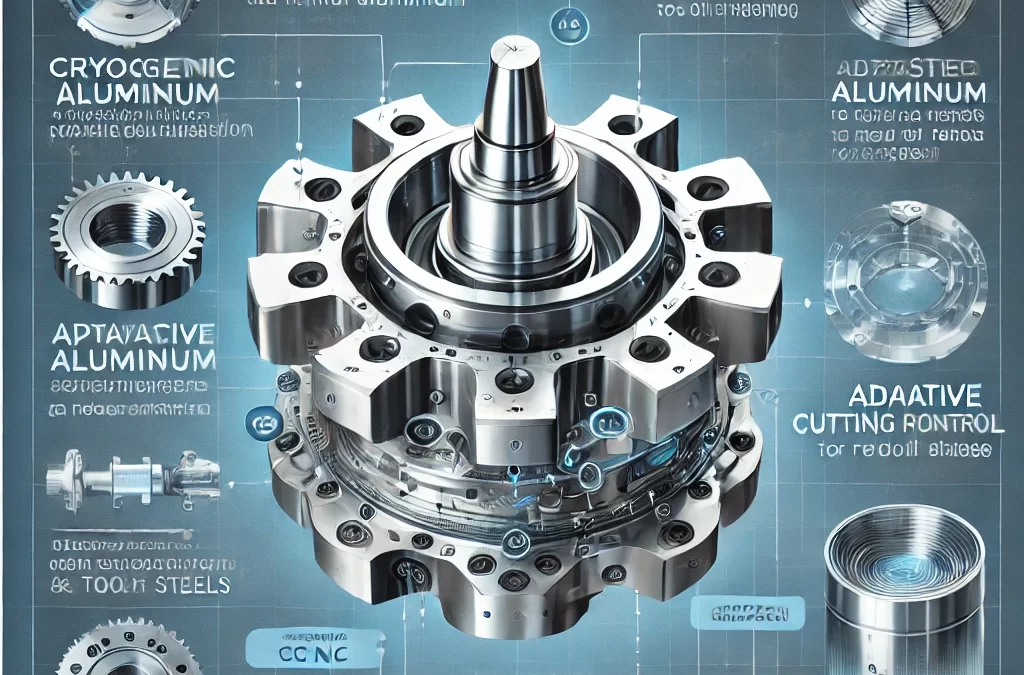Order Industrial CNC Machining Automation – High-Precision Parts & Suppliers in Milton, FL
In Milton, Florida, industries like aerospace, defense, and advanced manufacturing rely on precision CNC machining to produce mission-critical automation components. From robotic end effectors to mechatronics enclosures, the demand for high-tolerance, durable parts is surging. This guide explains why precision matters, the types of automation parts requiring CNC expertise, and how to choose a trusted supplier in Milton’s competitive market.
Why Precision is Critical in Manufacturing Industrial Automation Parts
Industrial automation systems operate in high-cycle, high-stress environments. Even minor deviations in part dimensions or material flaws can disrupt entire production lines. Here’s why precision is non-negotiable:
Ultra-Tight Tolerances and System Calibration
Automation components like linear guides and servo mounts require tolerances as tight as ±0.0005 inches. Precision CNC machining ensures parts fit seamlessly into complex assemblies, reducing calibration time and preventing mechanical failures.
Surface Integrity & Wear Resistance in High-Cycle Applications
Robotic arms or conveyor systems endure millions of cycles. CNC-machined parts with superior surface finishes (e.g., Ra < 0.8 μm) minimize friction and wear, extending service life.
Geometric Complexity & Miniaturization in Automation Components
With automation moving toward compact, multi-functional designs, micro-machining enables intricate features like micro-fluidic channels or sensor housings smaller than a dime.
Material Integrity & Structural Stability Under Load
High-performance alloys (e.g., titanium, Inconel) and engineering plastics must retain strength under vibration, heat, or heavy loads. Precision machining preserves material properties during production.
Types of CNC-Machined Parts for Industrial Automation
Motion Control & Actuation Components
- Lead screws and ball bearings
- Pneumatic valve bodies
- Harmonic drive gears
These parts demand precision CNC machining to maintain smooth, repeatable motion in robotic systems.
High-Reliability Robotic End Effectors
Grippers, suction cups, and tool changers require lightweight yet durable designs. Aluminum and carbon fiber composites are common materials.
Mechatronics and Control System Enclosures
CNC-machined enclosures protect sensitive electronics from dust, moisture, and EMI. Tight seals and thermal management features are critical.
Custom Fixtures & Modular Tooling
Jigs and fixtures for assembly lines must align perfectly with automation workflows. Modular designs allow quick reconfiguration via precision CNC machining.
How to Select a Supplier for Precision CNC Machining in Milton, FL
1. Maintaining Absolute Consistency Across High-Volume Production
Choose a supplier with ISO 9001 certification and statistical process control (SPC) systems. For just-in-time (JIT) manufacturing, ensure they can scale production without quality dips.
2. Machining High-Performance Materials for Harsh Environments
Verify expertise in stainless steel, PEEK, and superalloys. Milton’s coastal humidity and industrial heat require corrosion-resistant coatings like nickel plating or passivation.
3. Short Lead Times Without Sacrificing Precision
Suppliers leveraging micro-machining and multi-axis CNC centers can accelerate prototyping and bulk orders. Ask about rapid turnaround options.
4. Regulatory Compliance & Industry-Specific Certifications
Aerospace (AS9100) or medical (ISO 13485) certifications are vital for specialized applications.
5. Customization & Engineering Support for Complex Designs
Partner with suppliers offering CAD/CAM collaboration, DFM feedback, and prototyping services to refine complex geometries.
6. Integration of Digital Manufacturing for Smart Automation
IoT-enabled CNC machines and real-time production tracking ensure transparency and adaptability in just-in-time (JIT) manufacturing workflows.
Key Advantages of Local CNC Machining Suppliers in Milton, FL
- Faster Response Times: Proximity reduces shipping delays for urgent orders.
- Knowledge of Regional Needs: Familiarity with Milton’s aerospace and marine sectors ensures relevant material and compliance expertise.
- Cost Efficiency: Lower logistics costs and streamlined communication.
Key Points
- Precision tolerances (±0.0005″) prevent automation system failures.
- Micro-machining enables complex, miniaturized components.
- Select suppliers with certifications like AS9100 or ISO 13485.
- Just-in-time (JIT) manufacturing reduces inventory costs without compromising quality.
- Digital manufacturing tools enhance traceability and precision.
Conclusion
For Milton, FL, manufacturers, partnering with a skilled precision CNC machining supplier is key to thriving in industrial automation. Whether producing micro-sized sensor housings or high-strength robotic components, prioritize suppliers who combine advanced micro-machining capabilities with adherence to just-in-time (JIT) manufacturing principles. By focusing on material expertise, regulatory compliance, and digital integration, you’ll secure a competitive edge in producing reliable, high-performance automation systems.
FAQ
Q: What is micro-machining, and why is it important for automation?
A: Micro-machining creates tiny, intricate features (e.g., <0.1mm holes) essential for miniaturized sensors and medical devices.
Q: How does JIT manufacturing benefit industrial automation projects?
A: Just-in-time (JIT) manufacturing reduces inventory costs and waste by producing parts only as needed, ideal for rapidly evolving automation systems.
Q: Which materials are best for CNC-machined robotic parts?
A: Aluminum 6061-T6 (lightweight), stainless steel 316 (corrosion-resistant), and PEEK (high-temperature stability).
Q: Can precision CNC machining handle both prototypes and bulk orders?
A: Yes—reputable suppliers use scalable workflows to maintain accuracy across small and large batches.
Q: What certifications should a CNC supplier have for aerospace parts?
A: AS9100 certification ensures compliance with aerospace quality and safety standards.



